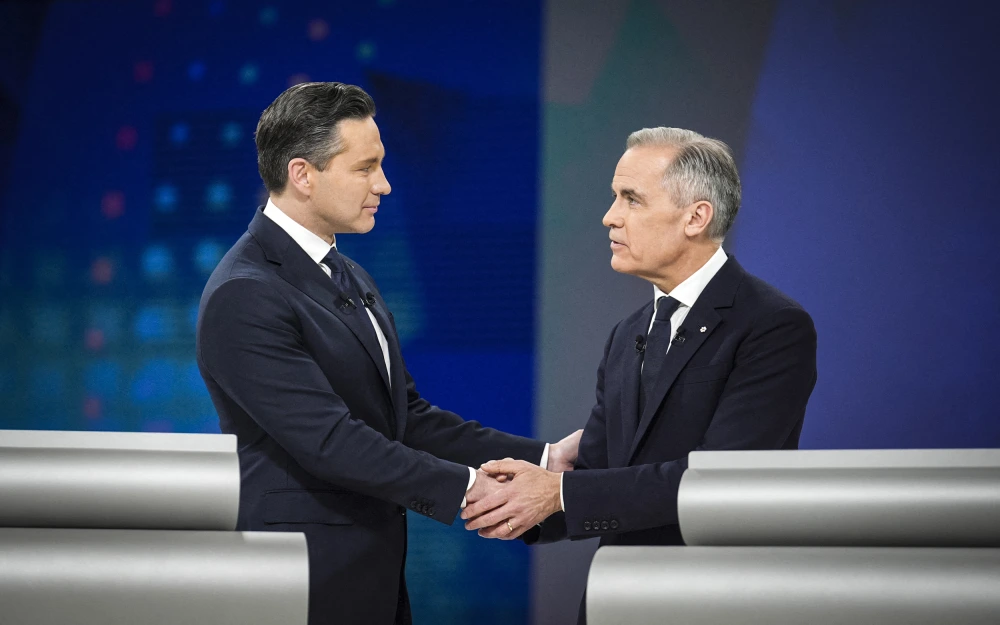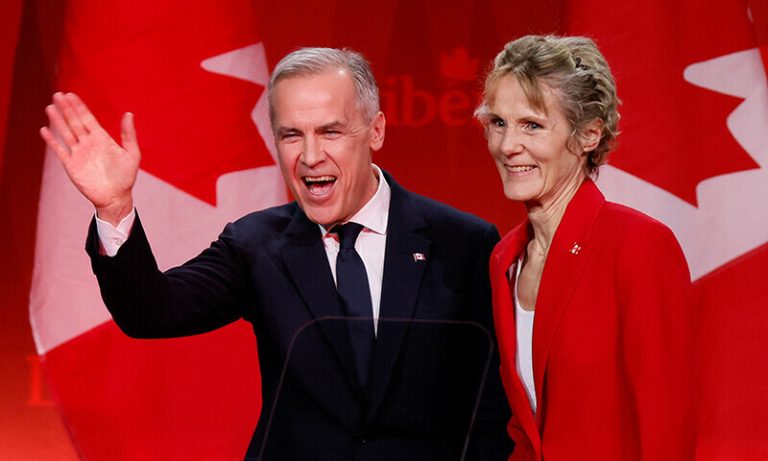Canadian Voters Re-Elect Liberals Under New Leader Mark Carney Amid Tensions With Trump
Canadian voters backed Prime Minister Mark Carney’s Liberal Party in Monday’s national election, according to projections by the Canadian Broadcasting Corporation (CBC). While it remains uncertain whether the Liberals have secured enough seats for a majority, the CBC projected that the party would continue governing — extending its nearly decade-long hold on power.
Just months ago, the Liberals appeared vulnerable, with polls showing them trailing the opposition Conservatives amid public discontent over inflation, immigration, and then-Prime Minister Justin Trudeau’s handling of relations with U.S. President-elect Donald Trump. Trudeau resigned on January 6, two weeks before Trump’s inauguration, following sustained voter dissatisfaction.
Trump’s conduct toward Canada after taking office — including aggressive tariffs on Canadian goods and a controversial proposal to make Canada the 51st U.S. state — significantly shaped the Canadian campaign. These actions triggered a backlash among Canadian voters and became a central issue in the election, fueling a dramatic turnaround for the Liberals, who had been nearly 20 points behind.

The party also benefited from the leadership of Mark Carney, a political newcomer with deep economic credentials. Before entering politics, Carney, 60, served as the governor of both the Bank of Canada and the Bank of England, helping manage financial crises including the 2008 recession and the Brexit transition. He took over the Liberal leadership last month and immediately called a snap election to seek a full mandate.
Carney’s campaign emphasized his economic expertise and pragmatic leadership. “Mark offers the proven leadership and real plan we need to deliver change for our party and our country, and to build the strongest economy in the G7,” his campaign stated.
His main opponent, Conservative leader Pierre Poilievre, initially gained traction with a populist platform focused on jobs and housing affordability, particularly for younger voters. However, his “Trump light” image, once a strength, began to backfire as Canadian frustration with Trump’s interference grew.
At a campaign event Sunday, Poilievre slammed the Liberals, calling their time in office “the lost Liberal decade of rising crime, chaos, drugs and disorder,” according to the CBC. On election day, Trump once again provoked Canadians by reiterating on Truth Social that the country should become America’s “cherished” 51st state, claiming: “ALL POSITIVES WITH NO NEGATIVES. IT WAS MEANT TO BE!”
Both Carney and Poilievre rejected Trump’s remarks. “They can become divided and weak,” Carney said in a video message, referring to the United States. “But this is Canada. And we decide what happens here.” Poilievre echoed that sentiment on X, writing: “President Trump, stay out of our election. Canada will always be proud, sovereign and independent and we will NEVER be the 51st state.”
For many voters, Trump’s role in the campaign proved decisive. “Poilievre sounds like mini-Trump to me,” said Reid Warren of Toronto, who cited U.S. tariffs as another concern. “Canadians coming together from all the shade being thrown from the States is great, but it’s definitely created some turmoil, that’s for sure.”
As of late Monday, Trump had not commented on the election outcome. However, former President Joe Biden congratulated Carney and the Liberals. “I’m confident Mark will be a strong leader for the fundamental values and interests Canadians and Americans share,” Biden posted on X.

